12-06-2024 | di COOPI
Somalia. The transformation of a village with access to clean and sustainable water
Mohamed Yussuf Mohamed, a father of 15 children residing in Qahira village, Baidoa, Somalia, was struggling with access to clean and reliable water after the only borehole available in the village had broken down; his community had to walk long distances for water, often using earth dam open and contaminated sources, leading to health issues, particularly for women and children. Then, Mohamed met COOPI – Cooperazione Internazionale, which, with support from the United Nations Office for the Coordination of Humanitarian Affairs (OCHA) and the Somalia Humanitarian Fund (SHF) and in coordination with the Somalia national and state level WASH Cluster, had initiated a project in June 2023 entitled “Provision of immediate life-saving WASH response and durable, cost-effective water supply in recurrent emergency hotspot rural areas of Baidoa”, aimed at providing immediate support to communities critically affected by the drought in 9 key underserved and hard-to-reach rural areas of Baidoa District of South West State in Somalia, including Mohamed’s village.
Mohamed became a key member of the local water committee, assuming the role of chairperson of the Water Committee, and playing a crucial role throughout the whole project. He worked closely with COOPI to establish a Water Management Committee and participated in training sessions to learn about effective water system operation and maintenance. His leadership ensured that the community adhered to best practices for water conservation and hygiene, promoting long-term sustainability.
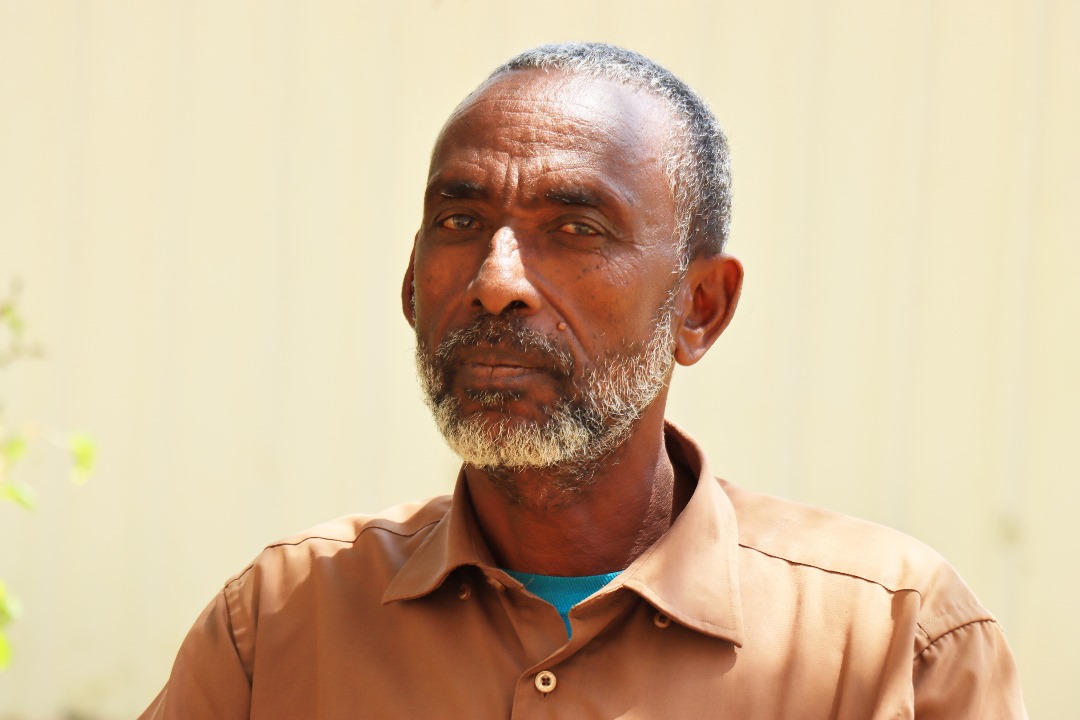
Mohamed, Qahira Water Management Committee Chair
In order to restore the functionality of the water supply system and upgrade to more a sustainable system, the activities carried out by COOPI in Qahira village involved preliminary tests to determine the capacity and water quality of wells, and thereafter the installation of solar pumping system, with pipeline extension up to 1500 meters, to reduce operation fuel costs, and the construction of 25 cubic meter elevated water tanks, as well as masonry water kiosks for water access. COOPI also provided spare parts for future maintenance.
In total, in rural Baidoa 3 Water Management Committees were created and their managerial and operational capacities were strengthened, 3 water supply systems were rehabilitated, 1500 hygiene kits including aqua tabs, 20-liter jerrycans, bar soap and buckets, as well as household hand washing kits, were delivered to the most vulnerable families, and 15334 people benefitted from hygiene promotion activities. The project reached 19134 beneficiaries.
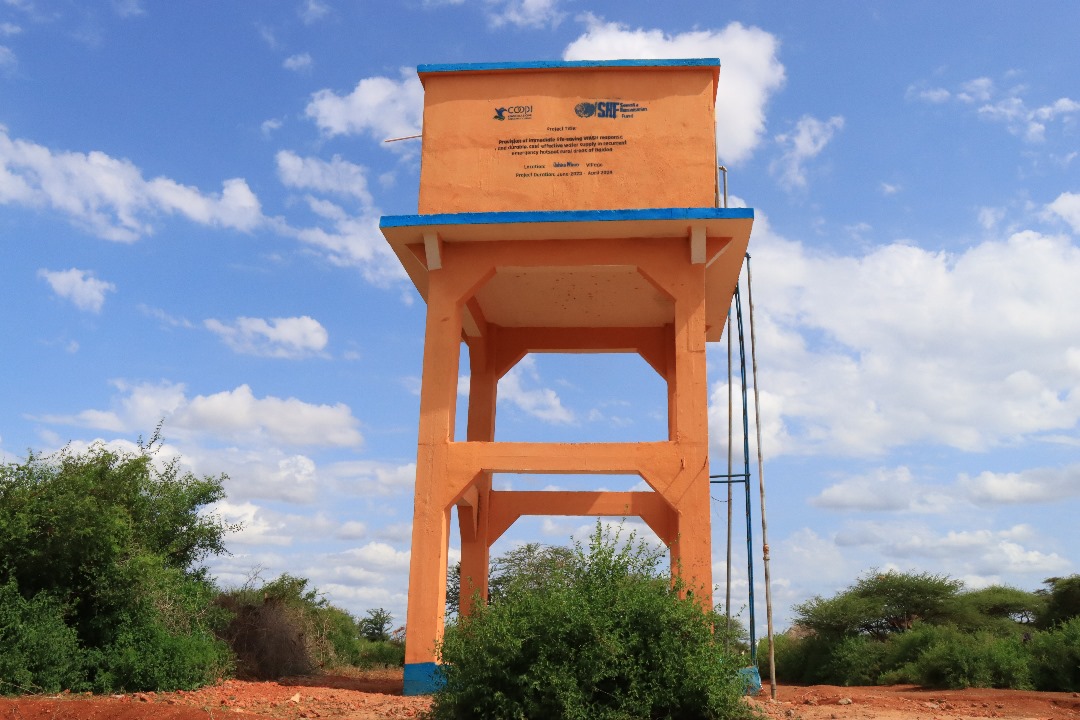
Qahira elevated water tank built by COOPI
COOPI's comprehensive approach, combined with community involvement and empowerment, instilled a profound transformation in Qahira Village, which today stands as a model of resilience and sustainable development. Not only did the new water system solve immediate challenges, but it also laid the foundation for a healthier and more prosperous future. The village now has access to a reliable water source and to improved health and hygiene, water borne diseases diminished, and children can attend school regularly. The availability of clean water also boosted economic activities, as villagers can focus more on farming and other livelihoods.
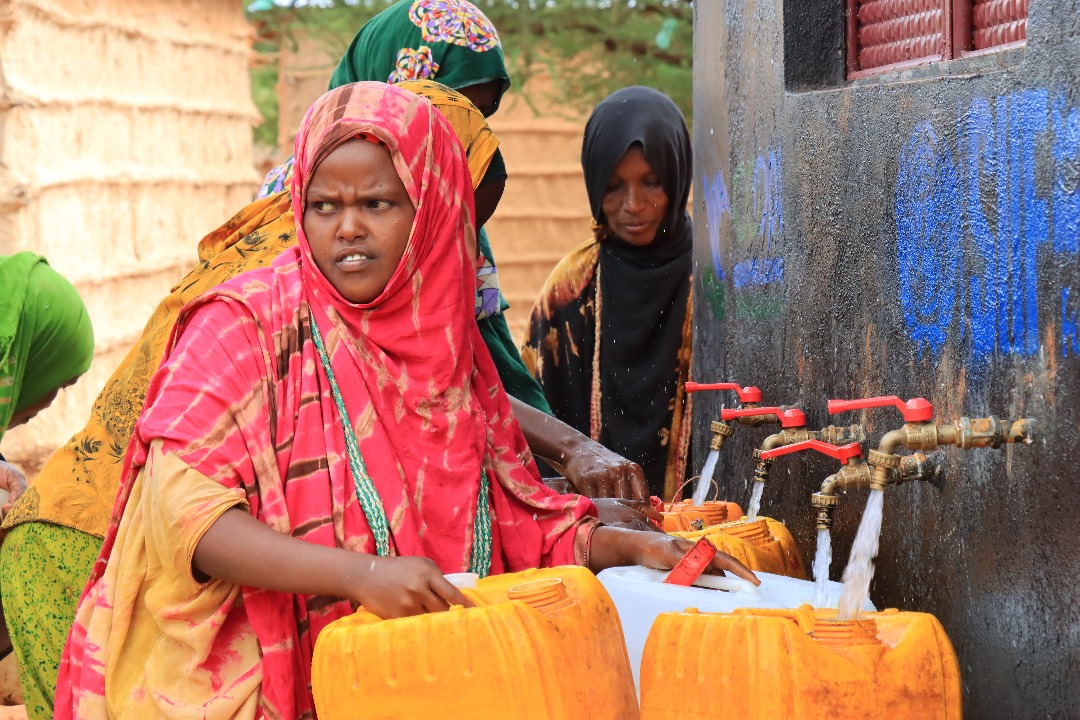 Qahira community members fetching water at the water kiosk
Qahira community members fetching water at the water kiosk
The water and hygiene sector is one of the main area of intervention of COOPI in Somalia, together with food security, livelihoods and health. COOPI has been present in the country since 1981, and, to respond to the current drought emergency, has immediately implemented emergency programs, while integrating development and resilience projects in the most affected regions. Each intervention integrates one or more cross-cutting areas, namely Protection, Gender, Environment and Disaster Risk Reduction.
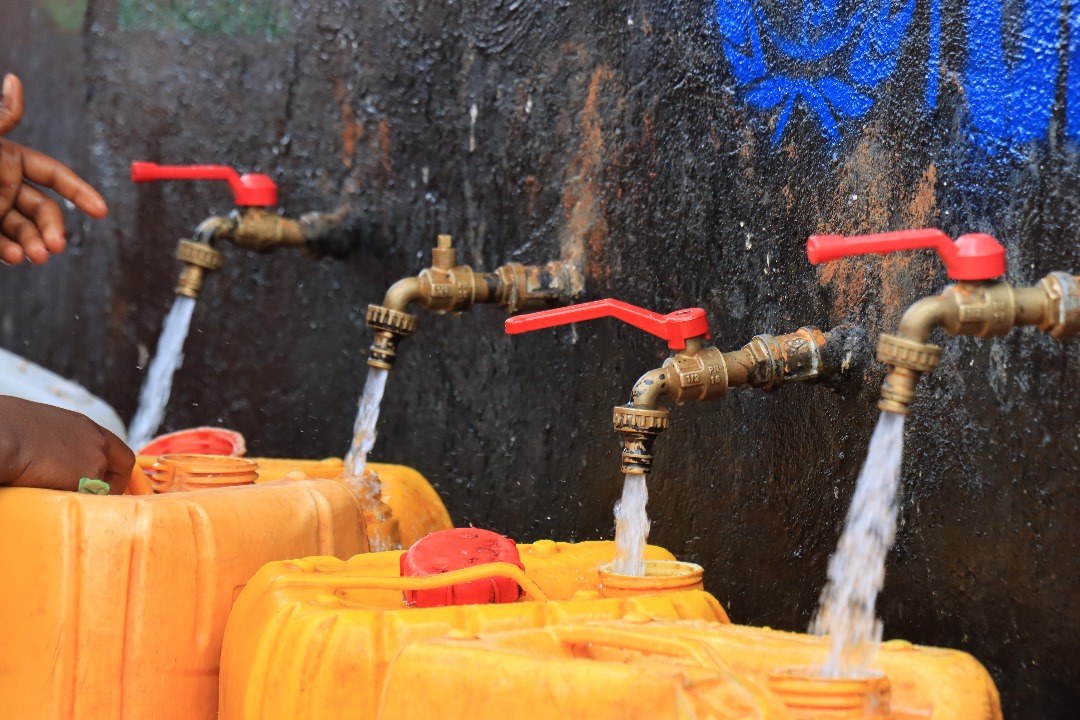
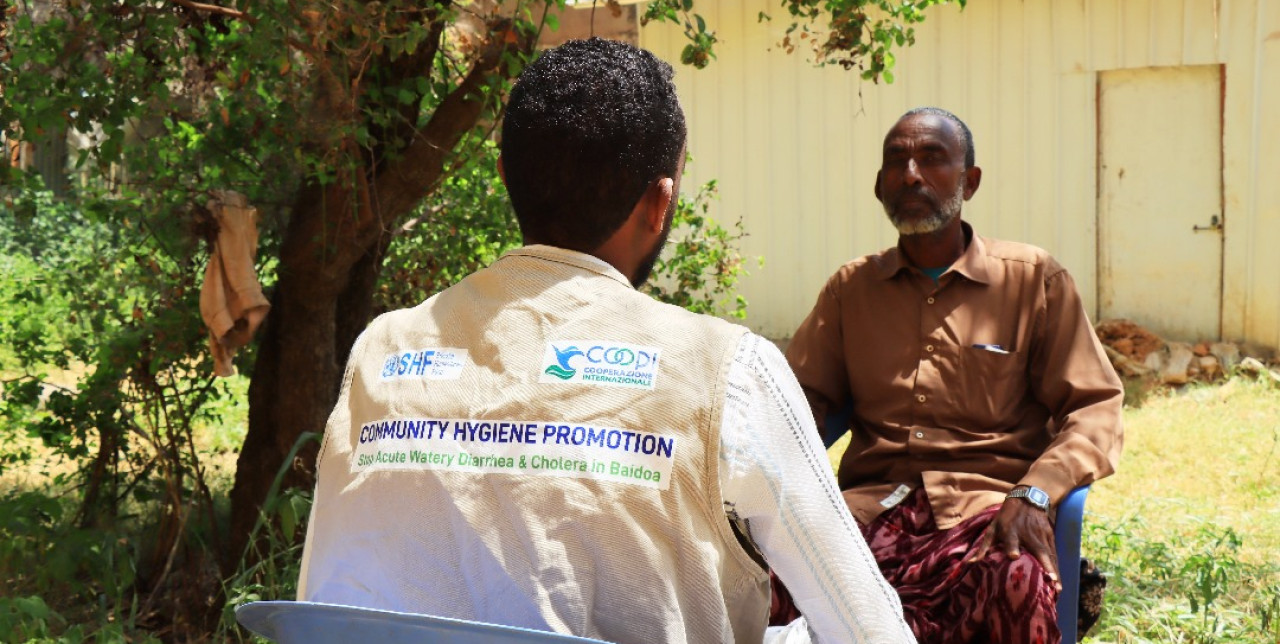



 Somalia
Somalia